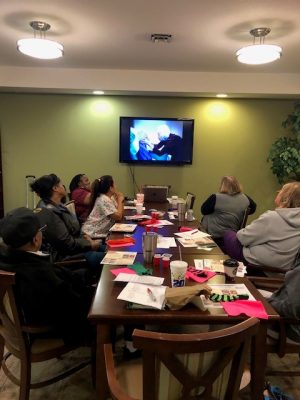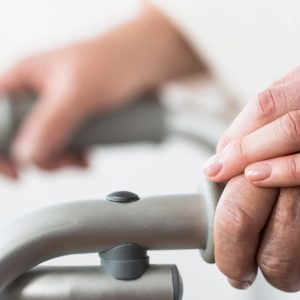
We understand the negative impact on quality care as a result of high employee turnover. However, more elusive is an understanding of how lackluster engagement of employees with longevity impacts quality.
Much of the focus is on recruiting new employees, and rightly so. Estimates show employee turnover nationally at 45%-66%.
At the same time, it is important that we also maintain the spirit and engagement of current employees. However, scare resources have forced employers in Aging Services to make tough decisions.
Cuts into the marrow of the employee education budget in light of the current staffing challenges could be devastating. In doing so, we inadvertently create a more disengaged workforce and impair quality.
Defense Against Declining Quality Care
The vital connection in health care is that employee engagement drives quality of care. To that end, one of the best ways to engage employees is through ongoing hands-on education and training.
Guard against what could become turn-over induced decline in quality with a robust and engaging employee education program for your experienced and dedicated employees.
Employees with longevity have also felt the devastation of workforce challenges. Fatigue with over-time and the constant flow of new employees in and out impacts the spirit of our dedicated workers. All the more reason to dedicate resources and efforts towards their ongoing growth and engagement.
The absence of training appears on this list of reasons for poor employee engagement. Employees with longevity also need to continue to learn and adopt best practices. In doing so, we ensure the evolution of our quality of care and service.
In conclusion, a corporate culture that supports growth and education for long-term employees will promote engaged workers and defend against declining quality care and service.
 Julie has worked in Aging Services for over 30 years and has been a Licensed Nursing Home Administrator since 1990. She is a Certified Master Trainer with the AGE-u-cate Training Institute. Through her company Enlighten Eldercare, Julie provides training and educational programs on elder caregiving to private and professional caregivers. She is an instructor and the Interim Director of Gerontology at Northern Illinois University and lives in the Chicago Northwest Suburb of Mount Prospect, IL.
Julie has worked in Aging Services for over 30 years and has been a Licensed Nursing Home Administrator since 1990. She is a Certified Master Trainer with the AGE-u-cate Training Institute. Through her company Enlighten Eldercare, Julie provides training and educational programs on elder caregiving to private and professional caregivers. She is an instructor and the Interim Director of Gerontology at Northern Illinois University and lives in the Chicago Northwest Suburb of Mount Prospect, IL.
 The
The  We are thrilled to have recently announced our collaboration with
We are thrilled to have recently announced our collaboration with 